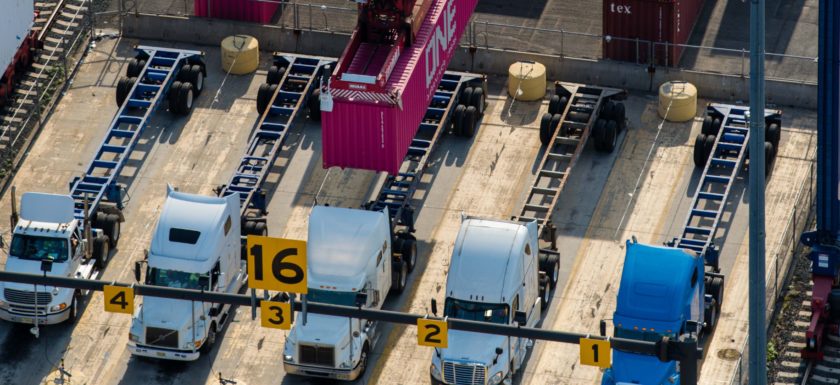
Both part-time and full time logistics jobs are available at the federal and state levels. They offer a number of advantages for job seekers. These include stable income, good benefits, and good income. Government careers can also be a great way to obtain experience in the industry.
For example, a Logistics Management Specialist is responsible for managing the supply chain. They manage suppliers and track deliveries. They are responsible for identifying and developing contingency plans, as well as identifying deficiencies in supply chains. This position requires communication skills, typing abilities, and knowledge regarding government procurement regulations.
Supply Chain Management Officers may work for either the Department of Veterans Affairs, or the Department of Homeland Security. The first requires an in-depth knowledge of the federal government's procurement regulations. While the second position involves managing logistics operations, sourcing supplies and managing supply chain management. Candidates need to have a bachelor’s degree or above depending on the job. Candidates should also be familiar with the regulations and business culture in the state they are applying for. Some positions require security clearances, and a candidate may be required to undergo a background check.

Other government logistics specialists can also be employed to deploy materials quickly after an event. A distribution role in disaster logistics is offered by the North Carolina Department of Public Safety. Candidates must have at minimum four years relevant experience. The position requires the candidate to be able manage people under stress.
Additionally, logistics management specialists are needed at the departmental and sub-ordinate levels. The Federal Aviation Administration is the typical logistic management specialist role. The qualifications include an advanced degree, specialized knowledge in operations or project managing, and a background of logistics management.
If you are interested in a career working as a government logistic coordinator, you will need to be able manage large quantities of international travel. Additionally, you will need to have some experience managing procurement negotiations and making bids for suppliers. Candidates must have at minimum two years relevant experience.
The federal government offers many other roles in supply chain management that you may be eligible to apply for. These positions include those in transportation, warehousing, distribution, and air transport. The federal government offers nearly 25% of these jobs, while the states offer an additional 8%.

You can search the USAJOBS website for a variety of jobs. You can also search based on title and degree type. The majority of these positions require a minimum of a bachelor's, although some may require master's degrees. Smaller organizations also have supply chain specialists jobs. Most supply chain professionals require at least one-year of experience to be eligible for a job.
Various positions for data scientists are available. Data Scientists support government programs and assist in the creation of strategic plans.
FAQ
Do we need to know about Manufacturing Processes before learning about Logistics?
No. You don't have to know about manufacturing processes before learning about logistics. Knowing about manufacturing processes will help you understand how logistics works.
What jobs are available in logistics?
There are many jobs available in logistics. Some of them are:
-
Warehouse workers - They load trucks and pallets.
-
Transport drivers - These are people who drive trucks and trailers to transport goods or perform pick-ups.
-
Freight handlers – They sort and package freight at warehouses.
-
Inventory managers - These are responsible for overseeing the stock of goods in warehouses.
-
Sales representatives - They sell products to customers.
-
Logistics coordinators are responsible for organizing and planning logistics operations.
-
Purchasing agents are those who purchase goods and services for the company.
-
Customer service representatives are available to answer customer calls and emails.
-
Shipping clerks - They process shipping orders and issue bills.
-
Order fillers: They fill orders based off what has been ordered and shipped.
-
Quality control inspectors - They check incoming and outgoing products for defects.
-
Others – There are many other types available in logistics. They include transport supervisors, cargo specialists and others.
What does "warehouse" mean?
A warehouse is a place where goods are stored until they are sold. It can be either an indoor or outdoor space. It could be one or both.
Why is logistics important in manufacturing
Logistics are essential to any business. They help you achieve great results by helping you manage all aspects of product flow, from raw materials to finished goods.
Logistics also play a major role in reducing costs and increasing efficiency.
What are the logistics products?
Logistics refers to the movement of goods from one place to another.
They include all aspects associated with transport including packaging, loading transporting, unloading storage, warehousing inventory management customer service, distribution returns and recycling.
Logisticians ensure that products reach the right destination at the right moment and under safe conditions. Logisticians help companies improve their supply chain efficiency by providing information about demand forecasts and stock levels, production schedules, as well as availability of raw materials.
They can also track shipments in transit and monitor quality standards.
Statistics
- It's estimated that 10.8% of the U.S. GDP in 2020 was contributed to manufacturing. (investopedia.com)
- Job #1 is delivering the ordered product according to specifications: color, size, brand, and quantity. (netsuite.com)
- According to the United Nations Industrial Development Organization (UNIDO), China is the top manufacturer worldwide by 2019 output, producing 28.7% of the total global manufacturing output, followed by the United States, Japan, Germany, and India.[52][53] (en.wikipedia.org)
- (2:04) MTO is a production technique wherein products are customized according to customer specifications, and production only starts after an order is received. (oracle.com)
- [54][55] These are the top 50 countries by the total value of manufacturing output in US dollars for its noted year according to World Bank.[56] (en.wikipedia.org)
External Links
How To
How to Use the Just In Time Method in Production
Just-in-time is a way to cut costs and increase efficiency in business processes. It is a process where you get the right amount of resources at the right moment when they are needed. This means you only pay what you use. Frederick Taylor was the first to coin this term. He developed it while working as a foreman during the early 1900s. After observing how workers were paid overtime for late work, he realized that overtime was a common practice. He decided that workers would be more productive if they had enough time to complete their work before they started to work.
The idea behind JIT is that you should plan ahead and have everything ready so you don't waste money. The entire project should be looked at from start to finish. You need to ensure you have enough resources to tackle any issues that might arise. You'll be prepared to handle any potential problems if you know in advance. You won't have to pay more for unnecessary items.
There are many JIT methods.
-
Demand-driven: This is a type of JIT where you order the parts/materials needed for your project regularly. This will enable you to keep track of how much material is left after you use it. You'll also be able to estimate how long it will take to produce more.
-
Inventory-based : You can stock the materials you need in advance. This allows you predict the amount you can expect to sell.
-
Project-driven: This is an approach where you set aside enough funds to cover the cost of your project. Knowing how much money you have available will help you purchase the correct amount of materials.
-
Resource-based JIT: This is the most popular form of JIT. Here, you allocate certain resources based on demand. You will, for example, assign more staff to deal with large orders. If you don’t have many orders you will assign less people to the work.
-
Cost-based: This is the same as resource-based except that you don't care how many people there are but how much each one of them costs.
-
Price-based: This approach is very similar to the cost-based method except that you don't look at individual workers costs but the total cost of the company.
-
Material-based is an alternative to cost-based. Instead of looking at the total cost in the company, this method focuses on the average amount of raw materials that you consume.
-
Time-based JIT: This is another variant of resource-based JIT. Instead of focusing only on how much each employee is costing, you should focus on how long it takes to complete your project.
-
Quality-based: This is yet another variation of resource-based JIT. Instead of worrying about the costs of each employee or how long it takes for something to be made, you should think about how quality your product is.
-
Value-based JIT is the newest form of JIT. In this scenario, you're not concerned about how products perform or whether customers expect them to meet their expectations. Instead, you focus on the added value that you provide to your market.
-
Stock-based is an inventory-based system that measures the number of items produced at any given moment. This method is useful when you want to increase production while decreasing inventory.
-
Just-intime (JIT), planning is a combination JIT management and supply chain management. It's the process of scheduling delivery of components immediately after they are ordered. It is essential because it reduces lead-times and increases throughput.